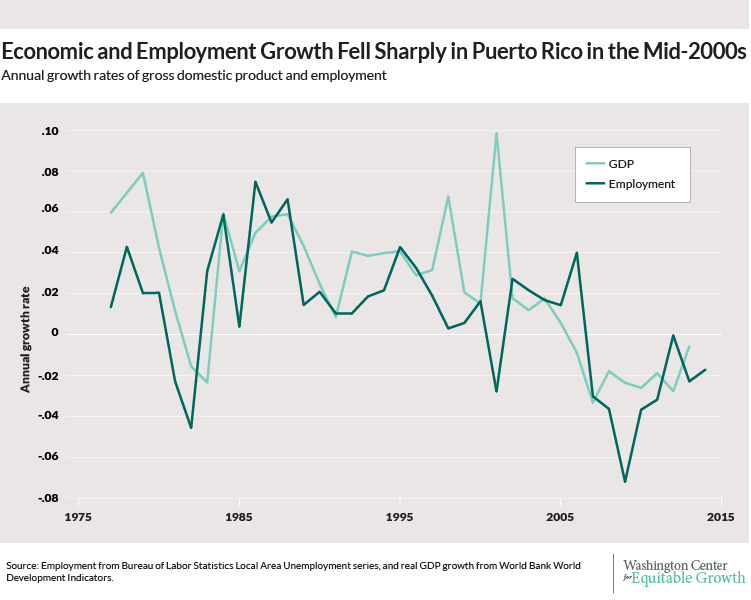Weekend reading
This is a weekly post we publish on Fridays with links to articles that touch on economic inequality and growth. The first section is a round-up of what Equitable Growth has published this week and the second is work we’re highlighting from elsewhere. We won’t be the first to share these articles, but we hope by taking a look back at the whole week, we can put them in context.
Editor’s Note: Value Added will be off for the next two weeks. We will resume our regularly scheduled postings on Monday, August 31.
Equitable Growth round-up
Is it time to consider ideas that would make U.S. monetary policy less dependent on fiscal policy?
New research indicates that more equitable distributions of pay within firms might decrease quit rates and reduce turnover within firms.
University of Massachusetts Amherst’s Arin Dube and Equitable Growth’s Ben Zipperer examine whether Puerto Rico’s debt crisis was caused by the island’s high minimum wage.
Equitable Growth announced the new 2015 class of grantees and more than $800,000 in new academic grants that will add to growing body of work on whether and how economic inequality affects growth.
Links from around the web
If the division of corporate rents is indeed shifting away from labor, Nobel Prize-Winning Economist, emeritus professor of economics at MIT, and Equitable Growth Steering Committee member Robert Solow argues that the “casualization of labor” may make it much harder for the work force to reverse the trend. [Robert Solow, Pacific Standard]
A growing mismatch in the supply and demand of childcare has wide-ranging economic repercussions for both individual households and the wider U.S. economy. [Michelle Jamrisko, Bloomberg]
Pre-school age-children may not care if they have access to first-run episodes of “Sesame Street,” yet this week’s announcement that HBO will air new episodes of the kids’ programming a full 9 months before they reach those without the premium service raises serious concerns about the economic stratification of a program that was created to address educational achievement gaps between kids from high- and low-income households. [Emily Steel, NYT]
According to a new report from the non-partisan Congressional Budget Office, reversing the federal government’s sequestration caps could generate as many as 1.4 million jobs over the next two years. [Rebecca Shabad, The Hill]
Friday figure

Figure via “From Puerto Rico’s predicaments: Is its minimum wage the culprit?” by Arindrajit Dube and Ben Zipperer.
